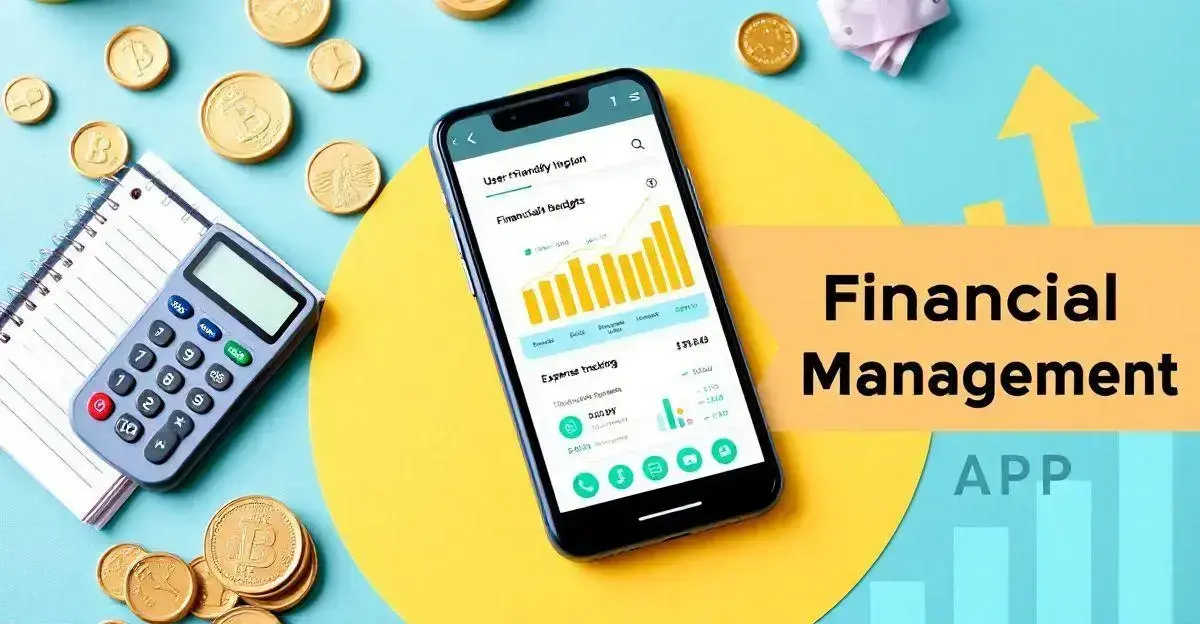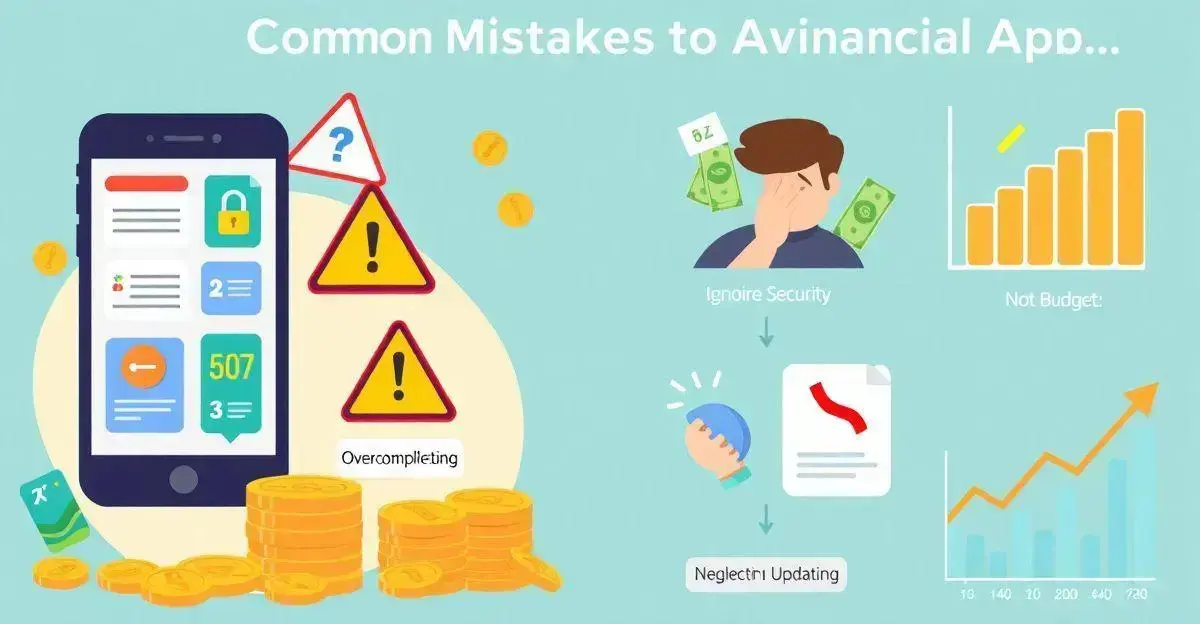In today’s fast-paced world, financial management apps have become essential tools for anyone looking to take control of their spending. These innovative applications help users track expenses, set budgets, and reach financial goals with ease and efficiency.
What Are Financial Management Apps?
Financial management apps are digital tools designed to help users maintain control over their finances. They provide functionalities that allow you to track expenses, create budgets, and manage investments, all in one place. With the rise of smartphone technology, these apps have become accessible and convenient for anyone looking to improve their financial health.
Many of these apps are equipped with features that sync up with your bank accounts, making it easy to get a real-time overview of your financial situation. This eliminates the need for tedious manual entries or keeping paper records, which can often lead to errors.
Moreover, financial management apps can provide valuable insights into your spending habits. By categorising your expenses into various segments—such as food, transportation, and entertainment—these apps offer reports that help you identify where your money is going. Consequently, users can make informed decisions to cut unnecessary expenses and save more effectively.
Some financial management apps even offer investment tracking capabilities, enabling users to monitor their portfolios and receive alerts on market changes. This dual focus on spending and investing supports a holistic approach to personal finance.
Benefits of Using Financial Management Apps

Using financial management apps offers a variety of benefits that can greatly enhance your financial health.
One of the key advantages is the convenience these apps provide. You can access them on your smartphone or tablet, making it easy to track your finances on the go.
Another benefit is automated tracking. Many apps sync directly with your bank accounts, which reduces manual input and minimizes errors. This feature allows users to view their transaction history in real time, leading to better money management decisions.
Financial management apps also help with budgeting. They often allow you to set specific spending limits for different categories, helping you to stick to a budget. This can improve your ability to save money and meet your financial goals.
Additionally, some apps offer insights into your spending habits. By categorising expenses, they provide a clear picture of where your money is going. This data can be crucial for identifying areas where you can cut back without sacrificing quality of life.
Furthermore, many financial management apps provide educational resources. Users can learn important financial concepts, such as investing and saving, right within the app. This can empower individuals to make better financial decisions.
In conclusion, the benefits of using financial management apps are clear. They offer convenience, automate tracking, assist with budgeting, provide insights, and educate users. By leveraging these tools, you can take control of your finances and work towards a more secure financial future.
Top Financial Management Apps of 2024
In 2024, several financial management apps have gained popularity due to their user-friendly features and effective tools. These apps are designed to cater to different financial needs, making them suitable for various users.
One of the top apps is Mint. It offers comprehensive budgeting tools that allow users to track expenses in real time by syncing with their bank accounts. In addition, Mint provides personalized advice based on spending habits.
Another leading app is YNAB (You Need A Budget). YNAB focuses on proactive budgeting, helping users allocate every dollar they earn. Its goal-setting feature encourages users to save for future expenses, such as vacations or emergency funds.
Personal Capital is also among the best options in 2024. Unlike other budgeting apps, it is geared towards investment management. Users can track their assets and liabilities, gaining insights into their financial health while planning for retirement.
EveryDollar stands out for its simplicity. It provides a straightforward interface that makes budgeting easy for newcomers. Users can create monthly budgets in seconds without dealing with complex features.
Lastly, GoodBudget offers a unique approach by using the envelope budgeting method. It allows users to plan their spending by setting aside virtual envelopes for different categories, promoting disciplined spending habits.
Overall, the top financial management apps of 2024 provide a variety of features to suit different needs. Whether you prefer detailed budgeting tools or investment tracking, there is an app that can help you manage your finances better.
How to Choose the Right App for You

Choosing the right financial management app is essential for effective budgeting and expense tracking. First, consider your financial goals. Are you looking to save money, track spending, or manage investments? Knowing your needs will narrow down your options.
Next, think about the app’s features. Look for one that can sync with your bank accounts for real-time tracking. Some apps offer budgeting tools, while others focus on investment management. Check user reviews to see what others say about the functionalities of the apps you are considering.
User-friendliness is another key factor. An app should have a simple interface that is easy to navigate. Try to find apps that permit you to customize your view or create categories that reflect your spending habits.
Security features are critical in today’s digital world. Ensure that the app uses encryption and other security measures to protect your personal information.
Finally, consider the cost. Many apps offer free versions, but premium plans often provide more features. Evaluate if the benefits of a paid app are worth the investment based on your financial needs.
By considering these factors, you can choose a financial management app that will effectively support your financial journey.
Tips for Getting the Most Out of These Apps
Regularly update your financial information by syncing your bank accounts for real-time tracking of spending and budgeting.
Set clear financial goals to stay focused and motivated. Many apps allow you to create and track these goals.
Categorize your expenses to understand your spending habits and identify areas for improvement.
Take advantage of alerts for exceeding budgets or upcoming bills to avoid late payments.
Use reports generated by the app to gain insights into spending patterns and encourage smarter financial habits.
Explore different apps to find one that better suits your financial goals if your current app isn’t meeting your needs.
Common Mistakes to Avoid with Financial Apps

Using financial apps can greatly improve your budgeting skills, but many users make common mistakes. First, failing to update financial information regularly can lead to inaccurate budgeting. Ensure you sync your bank accounts for real-time data.
Another mistake is not categorizing expenses correctly. Take time to assign expenses to specific categories, as this helps in identifying spending patterns.
Many users also set unrealistic budgets. It’s important to create achievable budgets based on your actual income and spending habits.
Relying solely on the app without reviewing your financial goals is another issue. Regularly assess your goals and adjust them as needed to stay on track.
Additionally, neglecting to take advantage of alerts can lead to overspending. Set up notifications for limits and upcoming bills to ensure you stay informed.
Lastly, be cautious about trusting all financial decisions to the app. Use it as a guide, but engage with your finances actively for a well-rounded view.
Future Trends in Financial Management Apps
As we look to the future, financial management apps are set to evolve significantly. One major trend is the integration of artificial intelligence. AI will enable these apps to provide personalized insights and recommendations, making budgeting easier for users.
Another trend is the increased focus on data security. With growing concerns about privacy, apps are investing in robust security features to protect sensitive financial information.
Additionally, we may see more collaboration features. Users will be able to team up with financial advisors or family members, allowing for shared financial goals and collaborative budgeting.
Mobile payments are also becoming more prevalent, with apps likely adopting cryptocurrency support. This integration could attract users interested in alternative investing.
Lastly, gamification will play a role in engaging users. By turning budgeting and financial planning into a game, users can learn better financial habits while having fun.
FAQ – Frequently Asked Questions about Financial Management Apps
How can financial management apps help me save money?
Financial management apps help you track expenses and create budgets, allowing you to identify areas where you can cut costs.
Are financial management apps secure?
Most reputable financial management apps use strong encryption and security measures to protect your data.
Can I use financial management apps to track my investments?
Yes, many financial management apps offer investment tracking features that allow you to monitor your portfolio and financial growth.
Do I need to pay for a financial management app?
While many apps offer free versions, some provide premium features that require a subscription fee.
How frequently should I update my financial information in the app?
It’s best to update your financial information regularly, ideally syncing your bank accounts daily or weekly for accurate tracking.
What features should I look for in a financial management app?
Look for features such as budgeting tools, expense tracking, financial goal setting, and investment management to meet your needs.
Check out our article on AI in Healthcare now!
